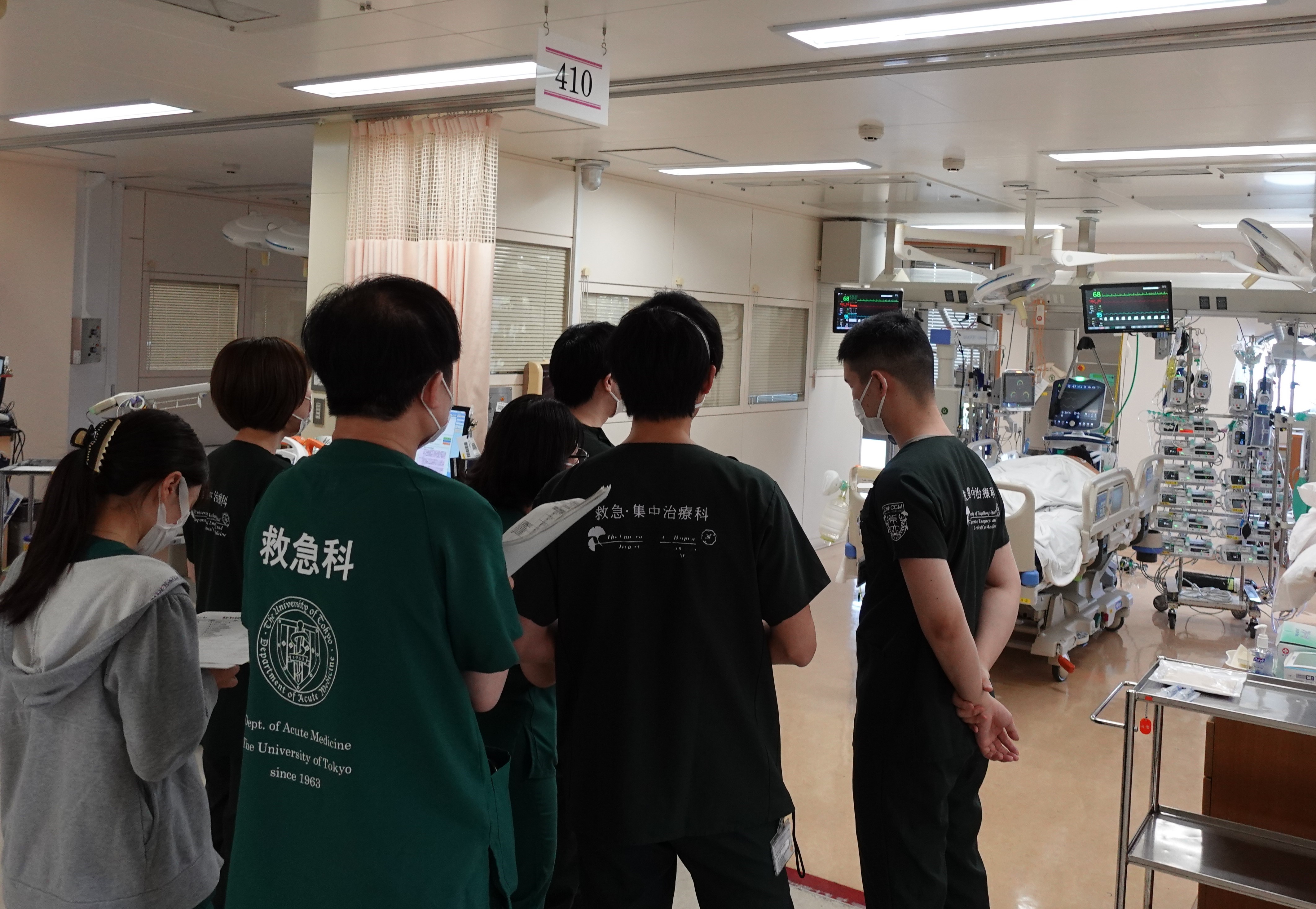Centers & Services
Top > Centers & Services > Central Clinical Services > Department of Intensive Care Unit
Department of Intensive Care Unit

The Department of Intensive Care Unit manages and mainly treats patients after highly invasive surgery and patients with severe conditions such as sepsis, multiple organ dysfunction syndrome, and shock.
Medical services
Centered intensive care physicians, specialist doctors such as internist, surgeon, and anesthesiology, as well as medical staff such as nurses, clinical engineers, pharmacists, nutritionists, and physical therapists. We provide treatment tailored to the patient’s condition. The Intensive Care Unit has ICU1 (16 beds) for patients such as with severe cardiovascular disease, post-heart surgery, and posttransplant patients, and ICU2 (18 beds) for high-risk surgery patients.
Treatment policy
Treatment plans are determined at daily ICU conferences attended by ICU staff and physicians from departments specializing in the care each ICU patient requires.
Specialties
We specialize in treating all severe condition. In addition to various drugs, we provide medical treating using mechanical support such as ventilator management, blood purification therapy, and mechanical circulatory support. We provide optimal treatment tailored to each individual patients based on the latest medical evidence.
Kent Doi
Departments/Divisions
Emergency and Critical Care Medicine, Critical Care and Emergency Medical Center/ER, Department of Intensive Care Unit, Department of Medical Engineering, Department of Disaster Medical Management
Titles
M.D., Ph.D.
Expertise/Specialties
Critical care medicine, Emergency medicine, Nephrology
Research Interests
Sepsis, Multiple organ failure, Acute kidney injury, Blood purification
Languages
English/Japanese
Since the Secondary ICU was installed in 2007, the Intensive Care Unit had been managed with a total of 40 beds comprising the Primary and Secondary ICUs until the Critical Care Center was launched in 2010, and 6 of the beds in the Secondary ICU were reallocated for critical care, consequently decreasing the total number of ICU beds to 34. The repair work which took place in 2010 also led to a temporary decrease in the number of inpatients; however, with an increasing number of patients with severe diseases visiting the center for emergency outpatient services, the total number of inpatients has been increasing since then.
Annual number of inpatients
| 2007 | 2008 | 2009 | 2010 | 2011 |
|---|
| Primary ICU | 823 | 795 | 844 | 760 | 675 |
| Secondary ICU | 1,865 | 1,865 | 1,862 | 1,817 | 1,755 |
| Critical Care Center ICU | - | - | - | 220 (from August) |
268 |
| Total | 2,688 | 2,660 | 2,706 | 2,797 | 2,698 |

